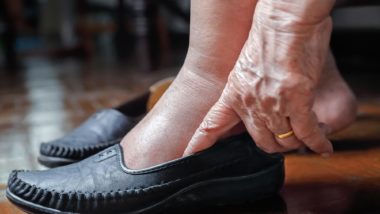Top Class Actions’s website and social media posts use affiliate links. If you make a purchase using such links, we may receive a commission, but it will not result in any additional charges to you. Please review our Affiliate Link Disclosure for more information.

In March 2016, Canadian researchers published the startling results of their study in BMJ. After analyzing the data from almost 146,000 patients treated between 2000 and 2013, the researchers reportedly concluded that individuals treated with Actos are at a 63 percent increased risk of developing bladder cancer.
The researchers determined that the risk for bladder cancer increases when the diabetes medication is used for over two years or if over 28,000 mg of the drug is consumed over someone’s life.
“The more you accumulate the drug into your system, the higher the risk,” said Laurent Azoulay, a senior researcher and associate professor of oncology at McGill University, according to WebMD.
Takeda Pharmaceuticals, which manufactures Actos, issued a statement in response to the study standing by their drug.
“Takeda is confident in the positive benefit-to-risk profile of pioglitazone. Two large, long-term observational studies found no significant increase in the risk of bladder cancer in diabetic patients taking pioglitazone. This data includes a 10-year, prospective cohort study, conducted by the University of Pennsylvania and Kaiser Permanente Northern California and […] a large epidemiological study utilizing five European Union databases […] to investigate the potential risk of bladder cancer with pioglitazone use,” said Elissa Johnsen who serves as the head of Takeda’s Global Product and Pipeline Communications.
Despite conflicting study conclusions, the potential risks for bladder cancer with Actos reportedly prompted the U.S. Food and Drug Administration (FDA) to add warnings to the drugs’ label to inform patients and doctors of the potential risks.
Although Azoulay and other researchers found a link between bladder cancer and diabetes medication Actos in their study, they determined that this risk was specific to the drug itself and does not apply to all drugs in the thiazolidinedione drug class. Thiazolidinedione drugs, including Actos and Avandia, help to treat diabetes by inducing the body to use insulin more effectively.
Consumers can rest easy knowing that Avandia has not been shown to carry the same bladder cancer and diabetes medication risk as Actos, but the drug has its own drawbacks. Several studies reportedly showed that Avandia may play a role in the development of heart failure and heart disease.
The difference between the risks associated with each of the drugs may come down to the mechanism by which they work. Although both Actos and Avandia are part of the thiazolidinedione drug class, Actos targets two receptors to help cells utilize insulin more effectively while Avandia only targets one.
These risks may have been more prevalent decades ago, but Dr. Kevin Pantalone says that newer, safer diabetes medications have taken over.
“When these drugs were first approved in the U.S., they were one of the very few options we had,” said Pantalone, an endocrinologist at the Cleveland Clinic, according to WebMD. “Now, largely because of the controversy surrounding these agents in recent years, their prescription pattern has declined.”
If you or a loved one took Actos and developed bladder cancer, you may qualify to file an Actos lawsuit and for an Actos settlement. Join this Actos lawsuit investigation by filling out the FREE form on this page.
ATTORNEY ADVERTISING
Top Class Actions is a Proud Member of the American Bar Association
LEGAL INFORMATION IS NOT LEGAL ADVICE
Top Class Actions Legal Statement
©2008 – 2024 Top Class Actions® LLC
Various Trademarks held by their respective owners
This website is not intended for viewing or usage by European Union citizens.
Get Help – It’s Free
Join a Free Actos Lawsuit Investigation
If you qualify, an attorney will contact you to discuss the details of your potential case at no charge to you.
PLEASE NOTE: If you want to participate in this investigation, it is imperative that you reply to the law firm if they call or email you. Failing to do so may result in you not getting signed up as a client or getting you dropped as a client.
Oops! We could not locate your form.












